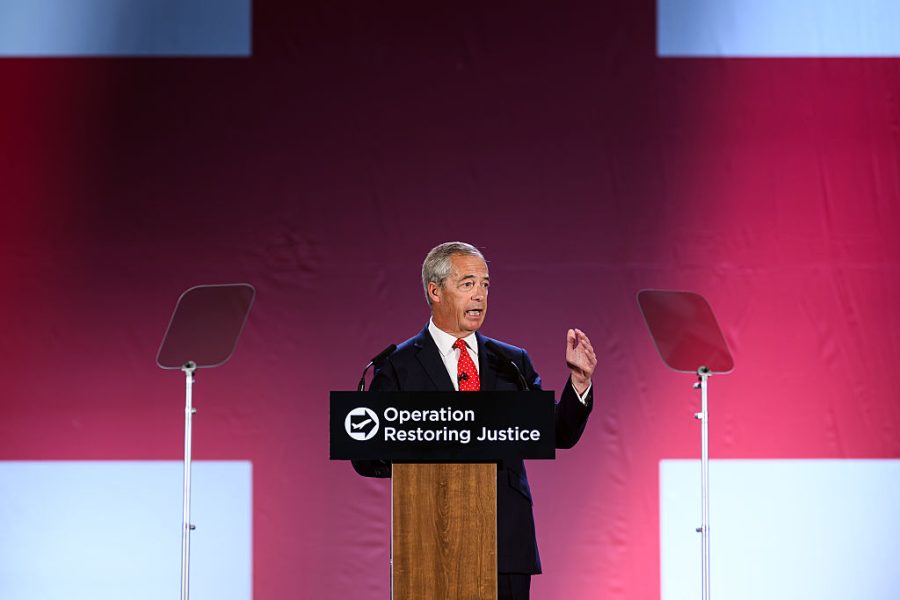Nigel Farage’s latest immigration plan contains a proposal that deserves to be taken seriously. Reform UK’s ‘Operation Restoring Justice’ promises mass deportations, detention camps, and the withdrawal from international treaties. Those elements will raise both legal and moral challenges. But another part of the package is something that deserves attention and credit: a scheme to pay £2,500 to people who agree to leave Britain voluntarily.
To some, the idea will look like bribery. Why should taxpayers reward people who have broken the rules? That is the instinctive reaction of many voters and the line taken by some politicians. Yet in policy terms, the idea is a good one. Removing people against their will is enormously expensive and politically fraught. A single forced deportation can cost more than £15,000, and holding someone in immigration detention racks up more than £30,000 a year. By contrast, a voluntary return typically costs a fraction of that sum – closer to £3,000 – and avoids both lengthy legal battles and the spectacle of coercion.
Rishi Sunak’s handling of the small boats issue was a case study in political mismanagement
Assisted Voluntary Return (AVR) is not a panacea. But compared with the alternatives, it looks pragmatic. If the state relies solely on enforcement, it incurs higher costs, faces international condemnation, and risks repeating injustices like the Windrush scandal. If it fails to act on enforcement and removals do nothing, the number of irregular migrants grows, feeding public anger and political extremism. Between those poles lies AVR: a policy that reduces numbers, saves money and treats migrants with greater dignity.
Farage is far from the first to back AVR. Back in 2019, long before small boats dominated the headlines, the Social Market Foundation think-tank published a report calling for exactly this approach. Written by my then-colleague Jonathan Thomas, it urged ministers to expand AVR schemes, offer cash and travel support, and provide practical help for migrants returning home to resettle or even start businesses. The SMF’s press release put it bluntly: ‘Use cash to help illegal migrants leave Britain.’
Jonathan’s analysis was prescient. He argued that relying solely on enforcement would prove politically unsustainable because the public would lose trust in a system that sounded tough but too often delivered chaos and injustice. He warned that Brexit and the end of free movement would increase irregular migration pressures and that public demand for action would grow. Each of those predictions has since come true. Today, Britain faces record Channel crossings, record asylum claims, and a political debate consumed by anger. Labour is scrambling to demonstrate control, the Conservatives insist they had tougher plans ready, and Farage is setting the agenda.
Had mainstream parties taken Jonathan’s advice seriously in 2019, they could have acted earlier with a policy that balanced realism and compassion. Instead, they defaulted to tough rhetoric and half-measures that pleased no one. Rishi Sunak’s handling of the small boats issue was a case study in political mismanagement: tell voters they’re right to be angry about an issue, then fail utterly to do anything about it. The result is today’s febrile atmosphere, where talk of mass deportations and treaty withdrawals commands headlines and plausible support.
Many migrants in Britain do not aspire to stay permanently. Circumstances, opportunity, and hope led them here, but many would prefer to go home if given the means to do so with dignity. Providing cash, travel, and support to start a business or resettle is not ‘rewarding illegality’ but acknowledging facts: if someone is determined not to leave, it’s very, very hard for a government to make them. If they are ambivalent, however, a little cash may tip the balance.
If you don’t know the SMF, it’s a centrist think tank, trying to find a middle way through partisan politics. Sometimes that means cosy consensus. Sometimes it means everyone hates you. At the time of our report in 2019, some of our friends on the Left privately accused us of succumbing to a Right-wing agenda, arguing that only bad people talked about removals and enforcement. It turns out that ‘bad people’ was another way of saying ‘the electorate’.
Meanwhile, some of our friends on the Right dismissed the AVR report as some sort of soft-hearted woolly leftism: what sort of pinko liberal pays illegal migrants to leave? The Nigel Farage kind, it turns out.
For the avoidance of doubt, yes, I am thoroughly enjoying the sight of Farage advocating a policy once championed by a Westminster beltway think tank. But this isn’t an ‘I told you so’ column though. I’m sad, not triumphant, because the SMF’s warnings were not heeded.
In a saner political culture, that 2019 paper on AVR would have been the start of a serious policy shift on migration enforcement and voluntary returns – if six years ago we’d started a serious effort to persuade illegal immigrants to leave, the whole issue of illegal migration would be smaller and easier to manage. Voters would be less angry and the country would be happier. It was all possible, if we’d just been brave enough to write some cheques to pay people who don’t have the right to be in Britain to leave Britain.
Of course, some readers will question my argument for paying migrants to leave. If you care about illegal immigration and removals, why should you listen to an equivocating centrist wonk from the SW1A clownshow that got this stuff wrong for so many years? You shouldn’t. You should listen to Nigel Farage instead.








Comments